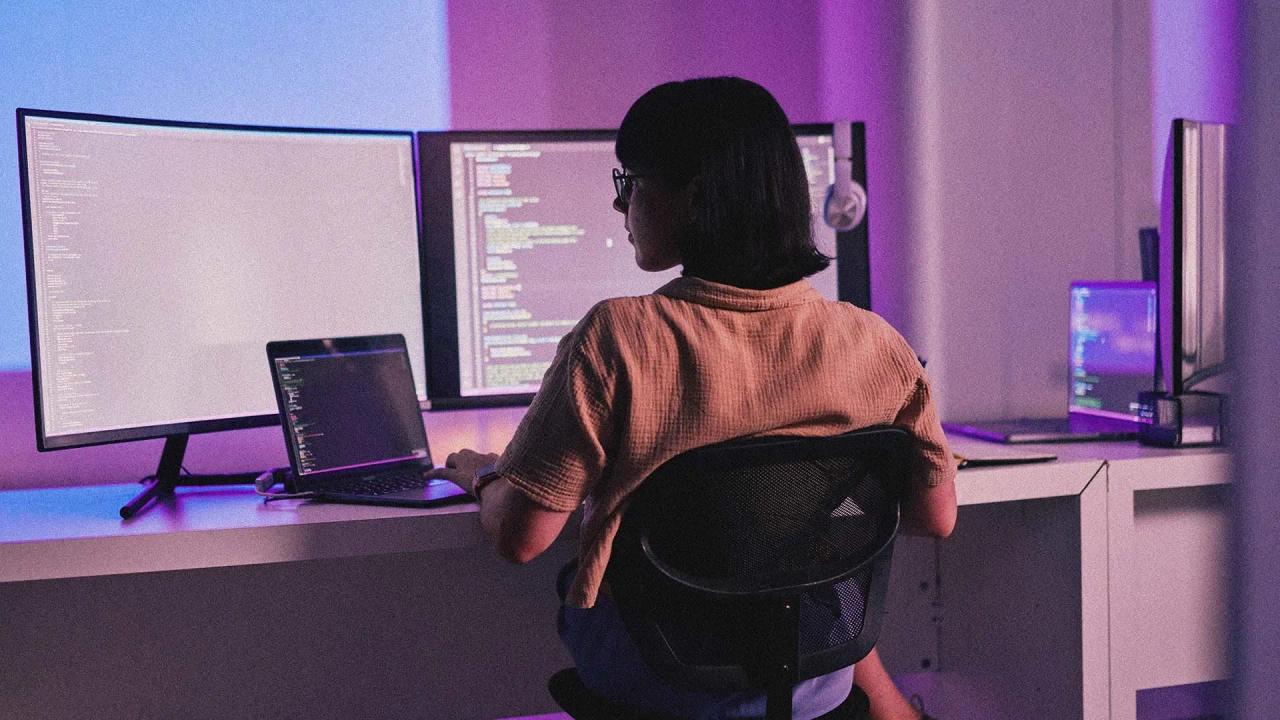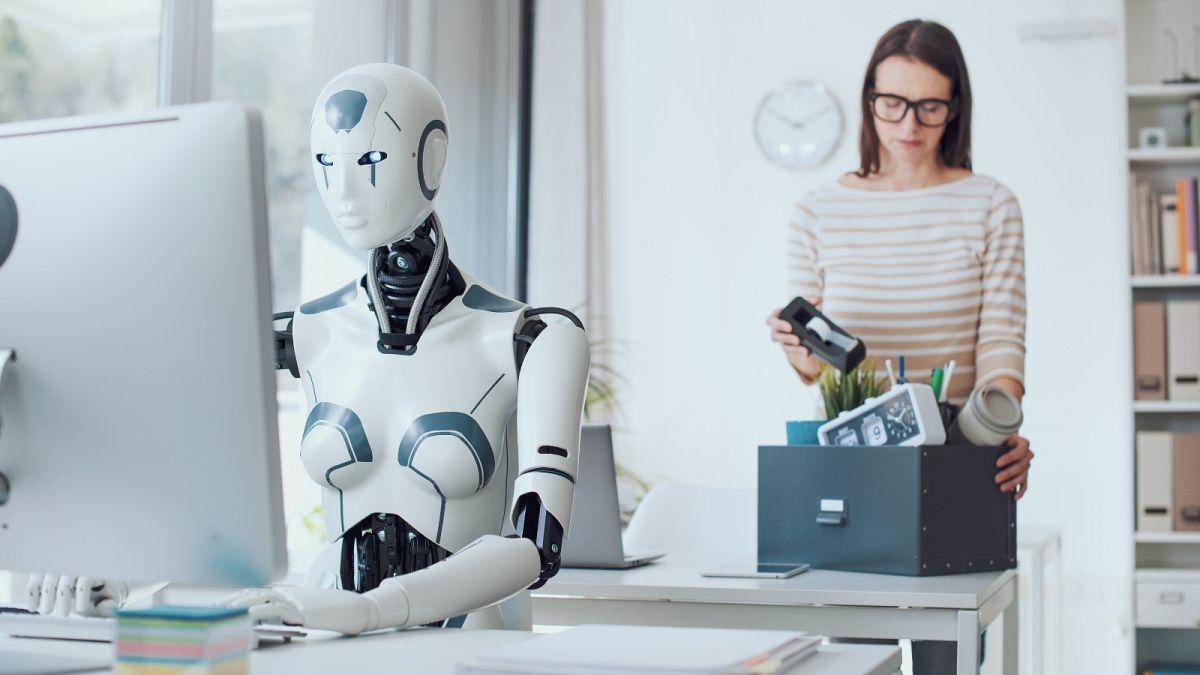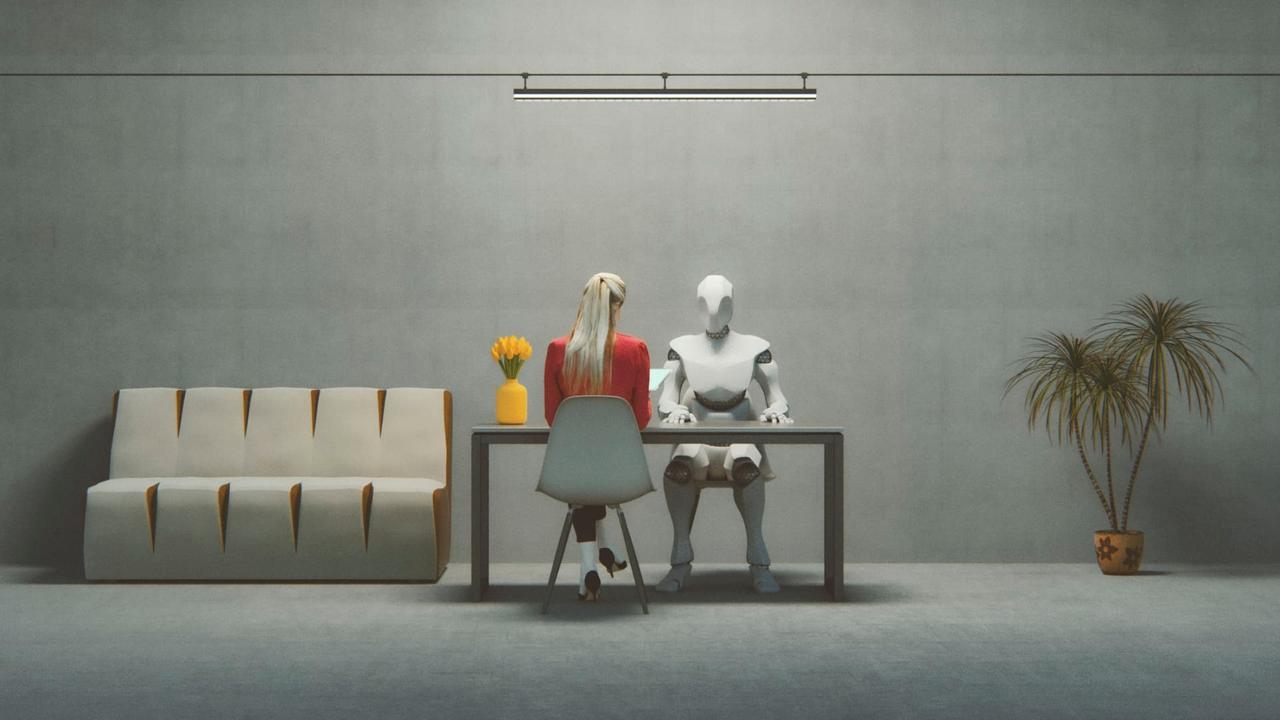AI's Uneven Impact: Women's Jobs at Higher Risk of Automation, UN Report Reveals
8 Sources
8 Sources
[1]
AI poses a bigger threat to women's work, than men's, says report
GENEVA, May 20 (Reuters) - Jobs traditionally done by women are more vulnerable to the impact of artificial intelligence than those done by men, especially in high-income countries, a report by the United Nations' International Labour Organization showed on Tuesday. It found 9.6% of traditionally female jobs were set to be transformed compared with 3.5% of those carried out by men as AI increasingly takes on administrative tasks and transforms clerical jobs, such as secretarial work. Human involvement will still be required for many tasks - and roles are more likely to be radically changed rather than eliminated, the report said. Jobs in the media, software and finance-related roles are also at the forefront of change as generative AI expands its learning abilities. "We stress that such exposure does not imply the immediate automation of an entire occupation, but rather the potential for a large share of its current tasks to be performed using this technology," the report said. It called on governments and employers' and workers' organisations to think about how AI can be used to enhance productivity and job quality. Reporting by Olivia Le Poidevin Editing by Ludwig Burger and Barbara Lewis Our Standards: The Thomson Reuters Trust Principles., opens new tab Suggested Topics:World at Work
[2]
AI Is Replacing Women's Jobs Specifically
With under three years of mass-market artificial intelligence available to consumers, businesses in nearly every industry have flocked to the tech like antivaxxers to a multi-level marketing scheme. By 2024, more than 50 percent of companies with more than 5,000 employees were using AI. For the penny-pinching boss, AI represents the promise of rising productivity and lower overhead cost -- also known as wages, which were traditionally paid to pesky human employees. Now, though, as workers around the world grow anxious at the idea of an AI future dominated by a few massive tech monopolies, the race to AI adoption is already having a noticeable effect on job markets. Thanks to AI, the number of young college grads entering the workforce hit an all-time low, full-time salary jobs are becoming gigified, and lying on resumes is now the norm as the job search becomes a nightmarish hell. Though rich tech tycoons like Marc Andreessen would have you believe that tech gadgetry has a magical power to free us all, history has shown us that technological development often sharpens existing inequalities instead of the other way around. (That trend has been observed by scholars ranging from Albert Einstein to Stephen Hawking, well before mass-market AI hit the scene.) Indeed, AI has already shown a surprising amount of gender and race bias thanks to the data it's trained on, and experts warn that this combination of prejudiced software with a massive global rollout is already driving exploitation. As such, it's no surprise that AI is likely to increase the gender gap in employment, according to an updated report from the United Nations' International Labour Organisation (ILO.) The report builds on estimates made in 2023 on the automation risk facing different jobs thanks to AI. The new analysis found that in high-income countries like the US, women's risk for "high automation potential" rose to 9.6 percent, up from 7.8 just two years ago. That's three times the risk faced by men today at 3.5 percent, which also rose from 2.9 percent in 2023. Interestingly, the study also found that one in three workers in rich countries face "some degree of exposure" to automation, compared to the world average of one in four. The ILO report also points out that the nature of jobs frequently held by women in wealthy nations -- like administrative, clerical, and data entry roles -- are primed for automation by AI. Sociologists have noted that the gender gap in labor hours worked has narrowed significantly in recent years -- meaning men and women work close to the same quantity of hours. However, the gender pay gap still persists as women's share of work goes less toward jobs and more into household tasks compared to men. With AI supposedly poised to "revolutionize work," it will take substantial change in our current labor environment to safeguard women from AI-driven austerity.
[3]
Women's jobs three times more likely to be taken by AI then men's
A new UN-led report found that women's jobs in high-income countries are more likely to be replaced or touched by artificial intelligence than their male peers. Women's jobs are at a higher risk of automation by artificial intelligence (AI) than those occupied by men, according to a new study from the United Nations. The recent report from the UN's International Labour Organisation (ILO) and Poland's National Research Institute of the Ministry of Digital Affairs (NASK) found that automation could replace just under 10 per cent of female-dominated positions in high-income countries compared to the 3.5 per cent it could replace for men. The biggest disparity between male and female-dominated jobs happens in high-income countries, where 41 percent of all high-income work for women could be exposed to AI, compared to 28 percent of men's jobs. In Europe and Central Asia, 39 per cent of women's jobs could be affected compared to 26 percent of men. The patterns identified by the study "reflect both occupational structures," and that AI-exposed jobs are "concentrated in higher-income countries". Overall, the ILO found that one in four workers globally work in an occupation with some AI exposure. Full replacement by AI still 'limited' To reach these findings, the survey was conducted with1,640 people employed in various fields in Poland, with the results analysed by a small group of international experts. Researchers then developed an AI that used this survey data alongside national job information to identify how likely 2,500 professions and over 29,000 work tasks would be automated. The study found that clerical occupations like data entry clerks, typists, word processing operators, accountants, and bookkeeping clerks are the most exposed to AI, due to some of the tasks performed in those professions, like taking meeting notes or scheduling appointments. Other professions identified with a large AI exposure are web and media developers, database specialists, financial, and software-related jobs. The study notes that these numbers reflect the "potential exposure," but that they don't reflect any actual job losses. Full replacement by AI is still "limited," the report continued, noting that human involvement is still needed to oversee certain tasks. "As most occupations consist of tasks that require human input, transformation of jobs is the most likely impact of generative AI," the report reads. What could impact the number of jobs lost or AI adoption more broadly are technological constraints, infrastructure gaps, and skills shortages, the report continued. The report asks governments, employees, and workers organisations to shape "inclusive strategies" that can help protect job quality and productivity in endangered fields. "It's easy to get lost in the AI hype," Janine Berg, senior economist at the ILO, said in a statement. "What we need is clarity and context".
[4]
AI poses a bigger threat to women's work, than men's, report says
The report found 9.6% of traditionally female jobs were set to be transformed compared with 3.5% of those carried out by men.Sanjeri / Getty Images Jobs traditionally done by women are more vulnerable to the impact of artificial intelligence than those done by men, especially in high-income countries, a report by the United Nations' International Labour Organization showed on Tuesday. It found 9.6% of traditionally female jobs were set to be transformed compared with 3.5% of those carried out by men as AI increasingly takes on administrative tasks and transforms clerical jobs, such as secretarial work. Human involvement will still be required for many tasks -- and roles are more likely to be radically changed rather than eliminated, the report said. Jobs in the media, software and finance-related roles are also at the forefront of change as generative AI expands its learning abilities. "We stress that such exposure does not imply the immediate automation of an entire occupation, but rather the potential for a large share of its current tasks to be performed using this technology," the report said. It called on governments and employers' and workers' organizations to think about how AI can be used to enhance productivity and job quality.
[5]
Women Are 3 Times More Likely to Lose Their Jobs to AI, a UN Report Warns
The fallout won't be spread out evenly, researchers warn. "Clerical jobs," the UN's labor body notes, "face the highest exposure of all" thanks to generative AI's "theoretical ability to automate many of their tasks." Thanks to the current configuration of the global labor market, that means many women's jobs are more at risk. The UN's blog post about the report puts it more plainly: Exposure to AI replacement risk among women "continues to be significantly higher," it says. In fact in "high-income countries, jobs at the highest risk of automation make up 9.6 percent of female employment," which is a "stark contrast to 3.5 percent of such jobs among men." That places women workers in more developed nations at around three times the risk of having their role taken by an AI system than male workers. But the report also notes that AI is evolving incredibly fast. So, while clerical jobs may be the first to be at risk of AI encroachment, it won't end there. "The expanding abilities of GenAI result in an increased exposure of some highly digitized cognitive jobs in media-, software- and finance-related occupations."
[6]
AI poses a bigger threat to women's work, than men's: Report
A UN report reveals AI is set to transform 9.6% of traditionally female jobs, compared to 3.5% for male roles, especially in high-income nations. Administrative and clerical work is most affected. Rather than replacing jobs, AI will reshape tasks. The report urges thoughtful use of AI to improve work quality.Jobs traditionally done by women are more vulnerable to the impact of artificial intelligence than those done by men, especially in high-income countries, a report by the United Nations' International Labour Organization showed on Tuesday. It found 9.6% of traditionally female jobs were set to be transformed compared with 3.5% of those carried out by men as AI increasingly takes on administrative tasks and transforms clerical jobs, such as secretarial work. Human involvement will still be required for many tasks - and roles are more likely to be radically changed rather than eliminated, the report said. Jobs in the media, software and finance-related roles are also at the forefront of change as generative AI expands its learning abilities. "We stress that such exposure does not imply the immediate automation of an entire occupation, but rather the potential for a large share of its current tasks to be performed using this technology," the report said. It called on governments and employers' and workers' organisations to think about how AI can be used to enhance productivity and job quality.
[7]
AI poses a bigger threat to women's work than men's, says U.N. report
Jobs traditionally done by women are more vulnerable to the impact of artificial intelligence than those done by men, especially in high-income countries, a report by the United Nations' International Labour Organization showed on Tuesday. It found 9.6% of traditionally female jobs were set to be transformed compared with 3.5% of those carried out by men as AI increasingly takes on administrative tasks and transforms clerical jobs, such as secretarial work. Human involvement will still be required for many tasks -- and roles are more likely to be radically changed rather than eliminated, the report said. Jobs in the media, software and finance-related roles are also at the forefront of change as generative AI expands its learning abilities. "We stress that such exposure does not imply the immediate automation of an entire occupation, but rather the potential for a large share of its current tasks to be performed using this technology," the report said. It called on governments and employers' and workers' organizations to think about how AI can be used to enhance productivity and job quality.
[8]
AI poses a bigger threat to women's work, than men's, says report
GENEVA (Reuters) -Jobs traditionally done by women are more vulnerable to the impact of artificial intelligence than those done by men, especially in high-income countries, a report by the United Nations' International Labour Organization showed on Tuesday. It found 9.6% of traditionally female jobs were set to be transformed compared with 3.5% of those carried out by men as AI increasingly takes on administrative tasks and transforms clerical jobs, such as secretarial work. Human involvement will still be required for many tasks - and roles are more likely to be radically changed rather than eliminated, the report said. Jobs in the media, software and finance-related roles are also at the forefront of change as generative AI expands its learning abilities. "We stress that such exposure does not imply the immediate automation of an entire occupation, but rather the potential for a large share of its current tasks to be performed using this technology," the report said. It called on governments and employers' and workers' organisations to think about how AI can be used to enhance productivity and job quality. (Reporting by Olivia Le PoidevinEditing by Ludwig Burger and Barbara Lewis)
Share
Share
Copy Link
A new UN report highlights that AI poses a greater threat to jobs traditionally held by women, especially in high-income countries, with clerical and administrative roles facing the highest risk of transformation.
AI's Disproportionate Impact on Women's Employment
A recent report by the United Nations' International Labour Organization (ILO) has revealed that artificial intelligence (AI) poses a significantly higher threat to jobs traditionally held by women compared to those typically occupied by men, particularly in high-income countries
1
. This finding underscores the potential for AI to exacerbate existing gender inequalities in the workforce.
Source: Futurism
Key Findings
The ILO report found that 9.6% of traditionally female jobs are set to be transformed by AI, compared to just 3.5% of jobs carried out by men
1
. In high-income countries, the disparity is even more pronounced, with 41% of women's work potentially exposed to AI, versus 28% for men3
.Most Vulnerable Sectors
Clerical and administrative roles face the highest risk of automation, due to AI's ability to perform tasks such as data entry, word processing, and scheduling
3
. Other sectors at high risk include:- Media-related occupations
- Software development
- Finance-related roles

Source: Inc.
These fields are particularly susceptible as generative AI continues to expand its learning capabilities
1
.Global Impact and Regional Variations
The study reveals that one in four workers globally work in an occupation with some AI exposure
3
. In Europe and Central Asia, 39% of women's jobs could be affected compared to 26% of men's jobs3
.Job Transformation vs. Elimination
It's important to note that the report emphasizes job transformation rather than complete elimination. Human involvement will still be required for many tasks, and roles are more likely to be radically changed rather than eliminated entirely
1
.Related Stories
Broader Implications for Gender Equality

Source: Euronews
The potential impact of AI on women's employment could have far-reaching consequences for gender equality in the workforce. Sociologists have noted that while the gender gap in labor hours worked has narrowed in recent years, the gender pay gap persists
2
. The disproportionate impact of AI on women's jobs could potentially widen this gap further.Call for Action
The ILO report calls on governments, employers, and workers' organizations to develop inclusive strategies that can help protect job quality and enhance productivity in fields at risk of AI automation
1
. Janine Berg, senior economist at the ILO, emphasizes the need for clarity and context in addressing the AI hype3
.As AI continues to evolve rapidly, it's crucial for stakeholders to address these challenges proactively to ensure that the benefits of AI are distributed equitably and that women's economic opportunities are protected and enhanced in the face of technological change.
References
Summarized by
Navi
[2]
Related Stories
The AI Gender Gap: Women's Underrepresentation in AI Usage and Its Implications
30 Jul 2025•Technology

AI Adoption in the Workplace: Widening Gender Gaps and Potential Consequences
09 May 2025•Business and Economy

Women Recognize the Importance of AI for Career Advancement, Despite Lower Interest
11 Aug 2024

Recent Highlights
1
Google Gemini 3.1 Pro doubles reasoning score, beats rivals in key AI benchmarks
Technology

2
Meta strikes up to $100 billion AI chips deal with AMD, could acquire 10% stake in chipmaker
Technology

3
Pentagon threatens Anthropic with supply chain risk label over AI safeguards for military use
Policy and Regulation





